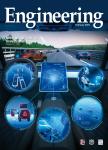The City Intelligence Quotient (City IQ) Evaluation System" Conception and Evaluation
The City Intelligence Quotient (City IQ) Evaluation System" Conception and Evaluation作者机构:Tongji University Shanghai 200092 China Chinese Academy of Engineering Beijing 100088 China
出 版 物:《Engineering》 (工程(英文))
年 卷 期:2016年第2卷第2期
页 面:196-211页
核心收录:
学科分类:0402[教育学-心理学(可授教育学、理学学位)] 040203[教育学-应用心理学] 04[教育学] 081203[工学-计算机应用技术] 08[工学] 0835[工学-软件工程] 0812[工学-计算机科学与技术(可授工学、理学学位)]
主 题:iCity Evaluation system Open data Intelligent city being Intelligence quotient
摘 要:After a systematic review of 38 current intelligent city evaluation systems (ICESs) from around the world, this research analyzes the secondary and tertiary indicators of these 38 ICESs from the perspec- tives of scale structuring, approaches and indicator selection, and determines their common base. From this base, the fundamentals of the City Intelligence Quotient (City IOD Evaluation System are developed and five dimensions are selected after a clustering analysis. The basic version, City IQ Evaluation System 1.0, involves 275 experts from 14 high-end research institutions, which include the Chinese Academy of Engineering, the National Academy of Science and Engineering (Germany), the Royal Swedish Academy of Engineering Sciences, the Planning Management Center of the Ministry of Housing and Urban-Rural Development of China, and the Development Research Center of the State Council of China. City IQ Evaluation System 2.0 is further developed, with improvements in its universality, openness, and dy- namic adjustment capability. After employing deviation evaluation methods in the IQ assessment, City IQ Evaluation System 3.0 was conceived. The research team has conducted a repeated assessment of 41 intelligent cities around the world using City IQ Evaluation System 3.0. The results have proved that the City IQ Evaluation System, developed on the basis of intelligent life, features more rational indicators selected from data sources that can offer better universality, openness, and dynamics, and is more sen- sitive and precise.



